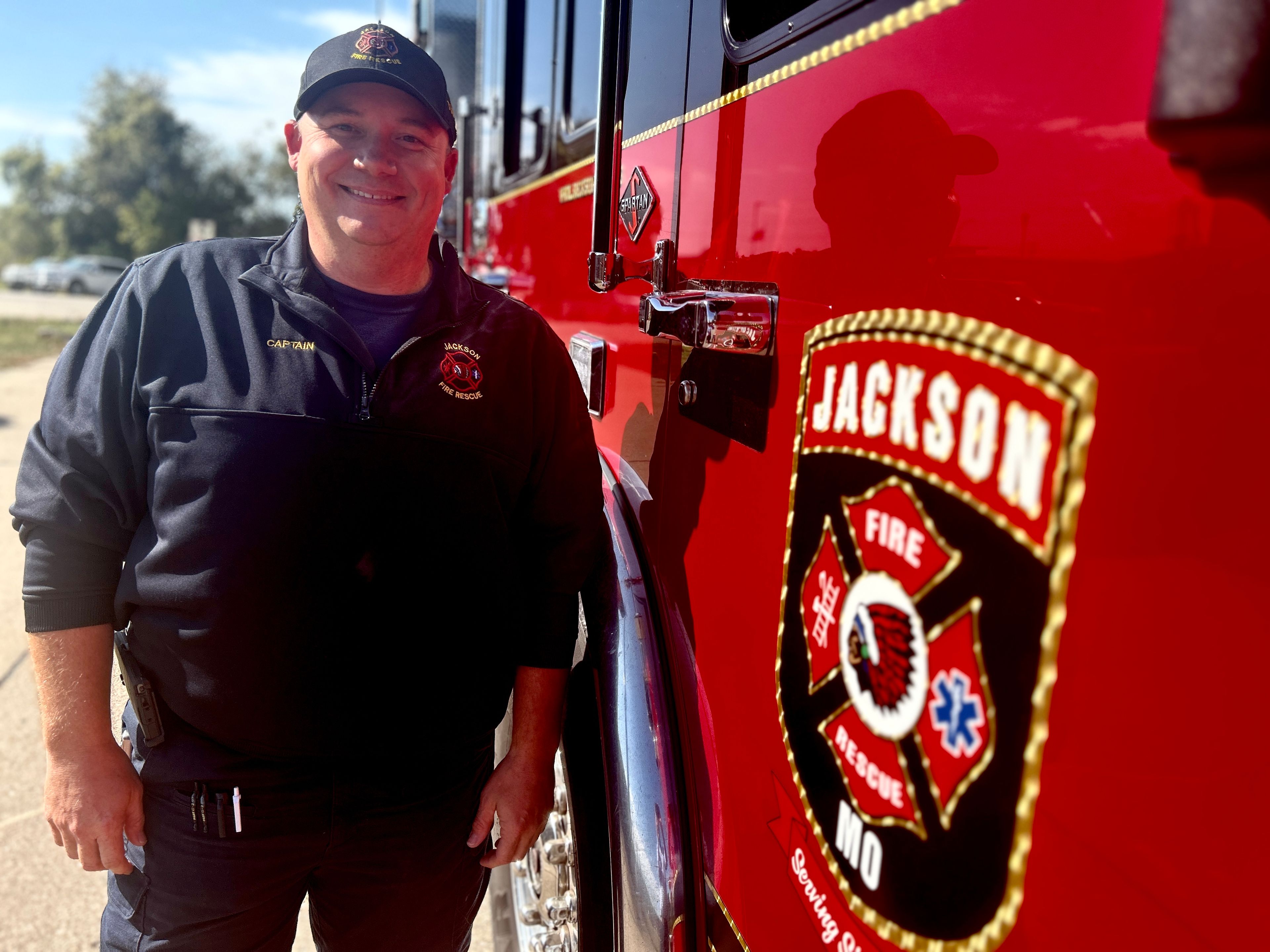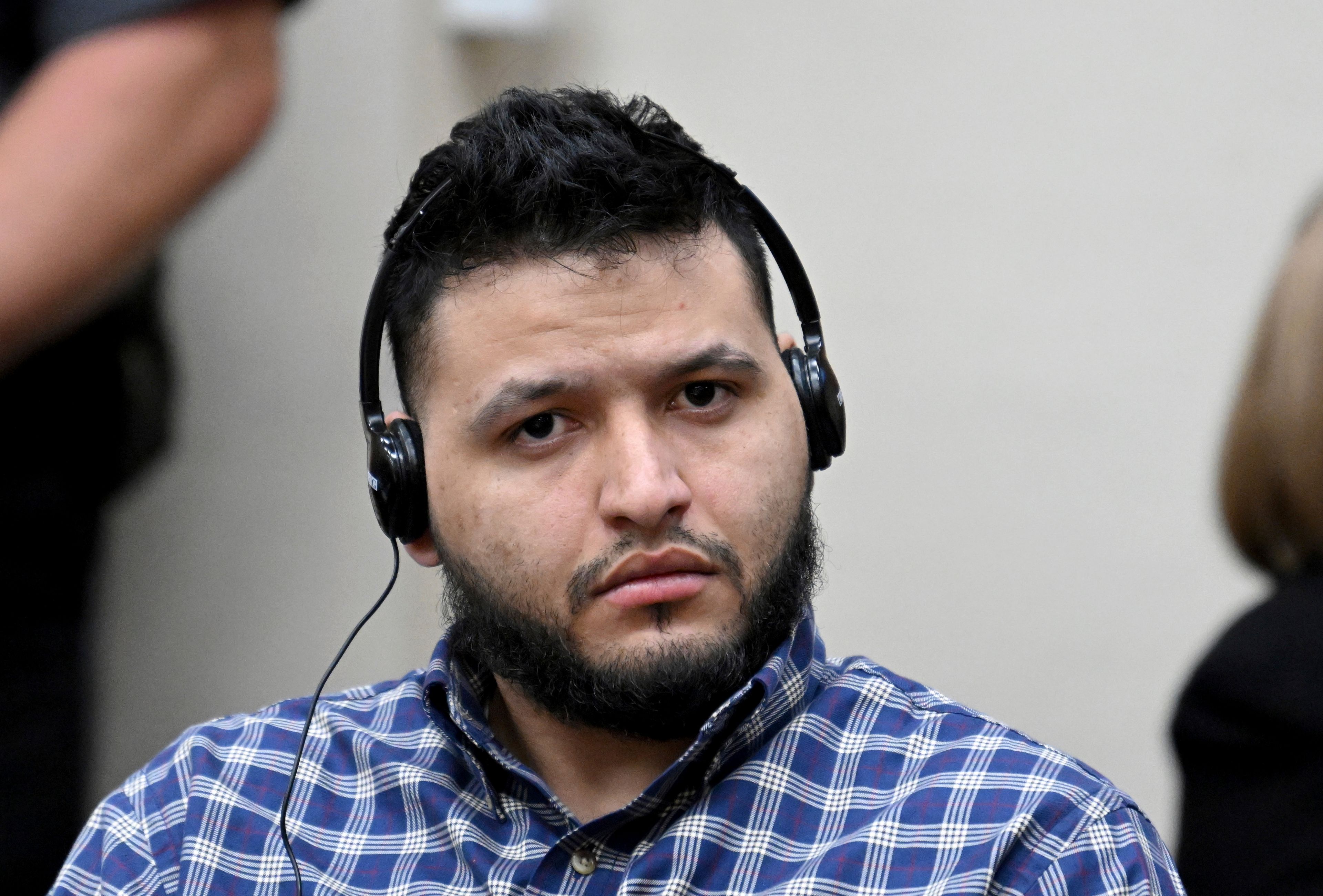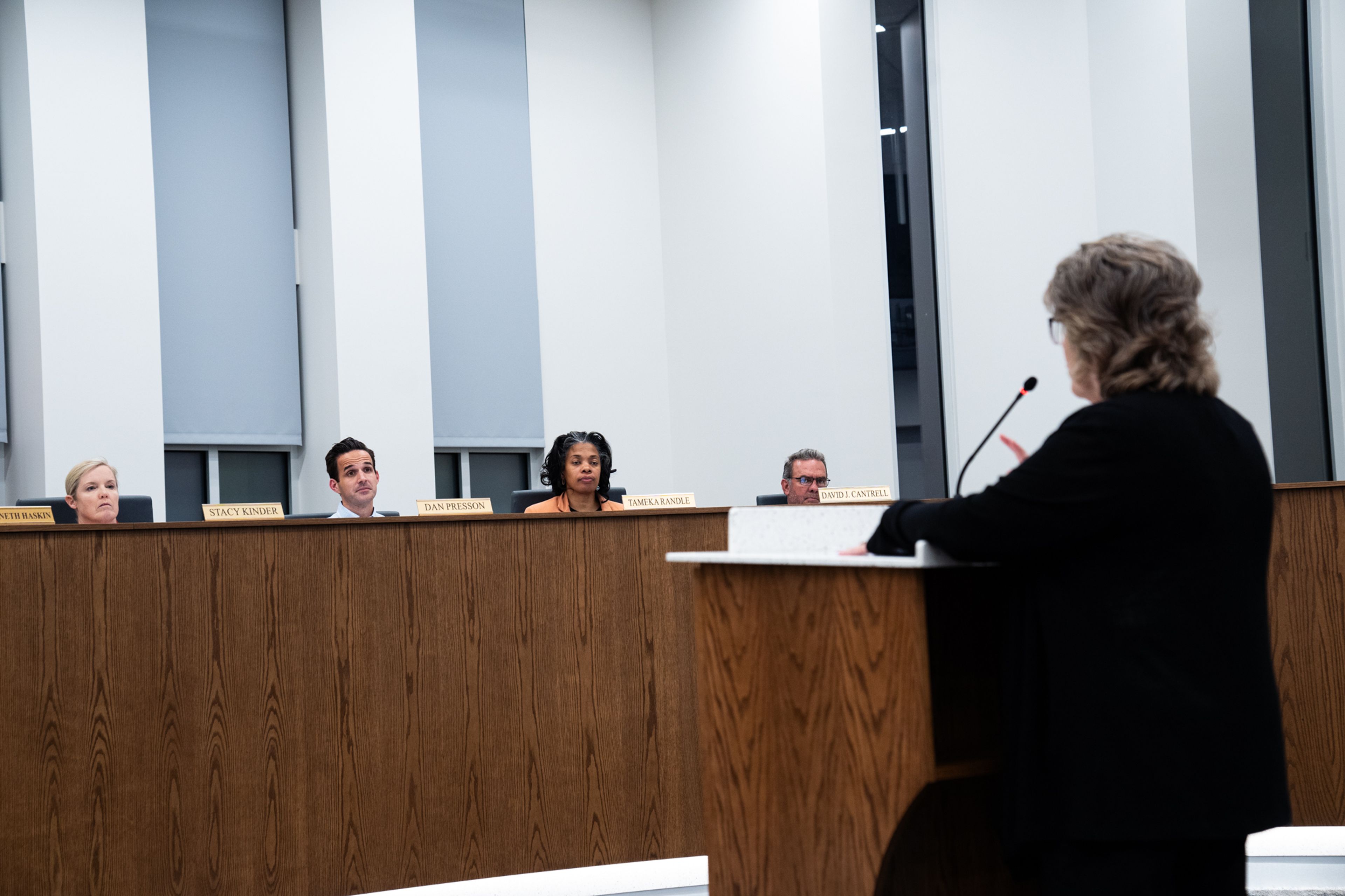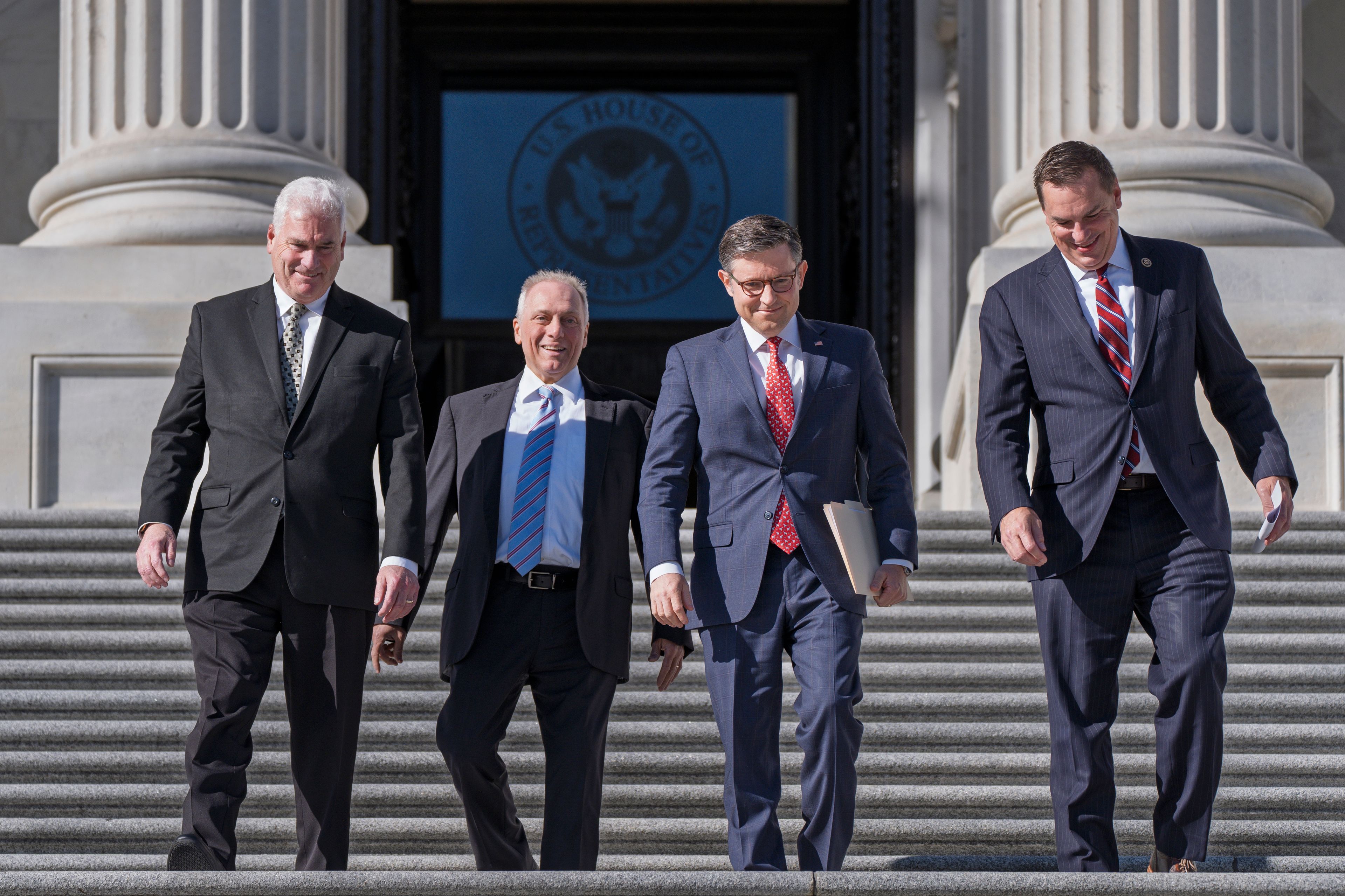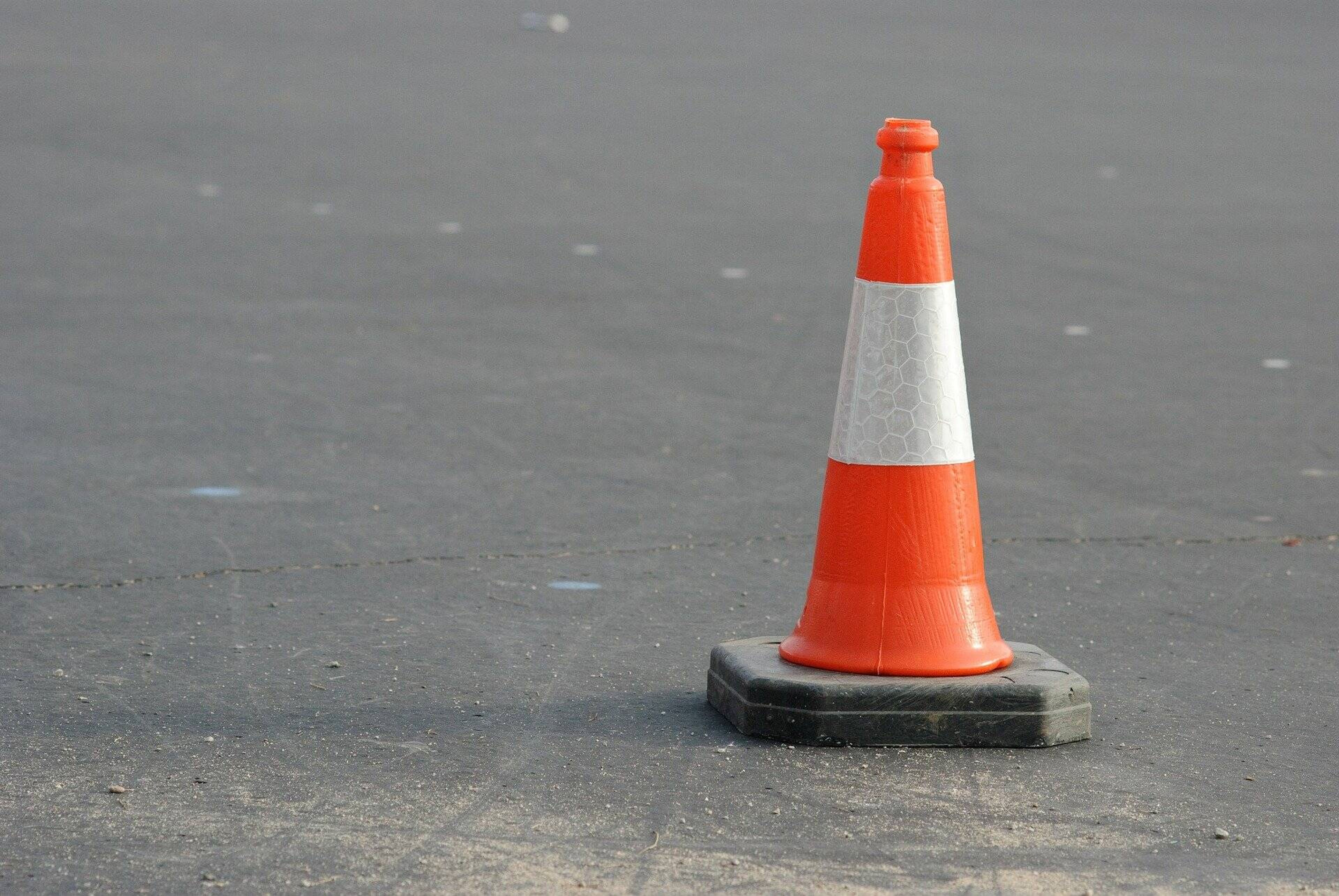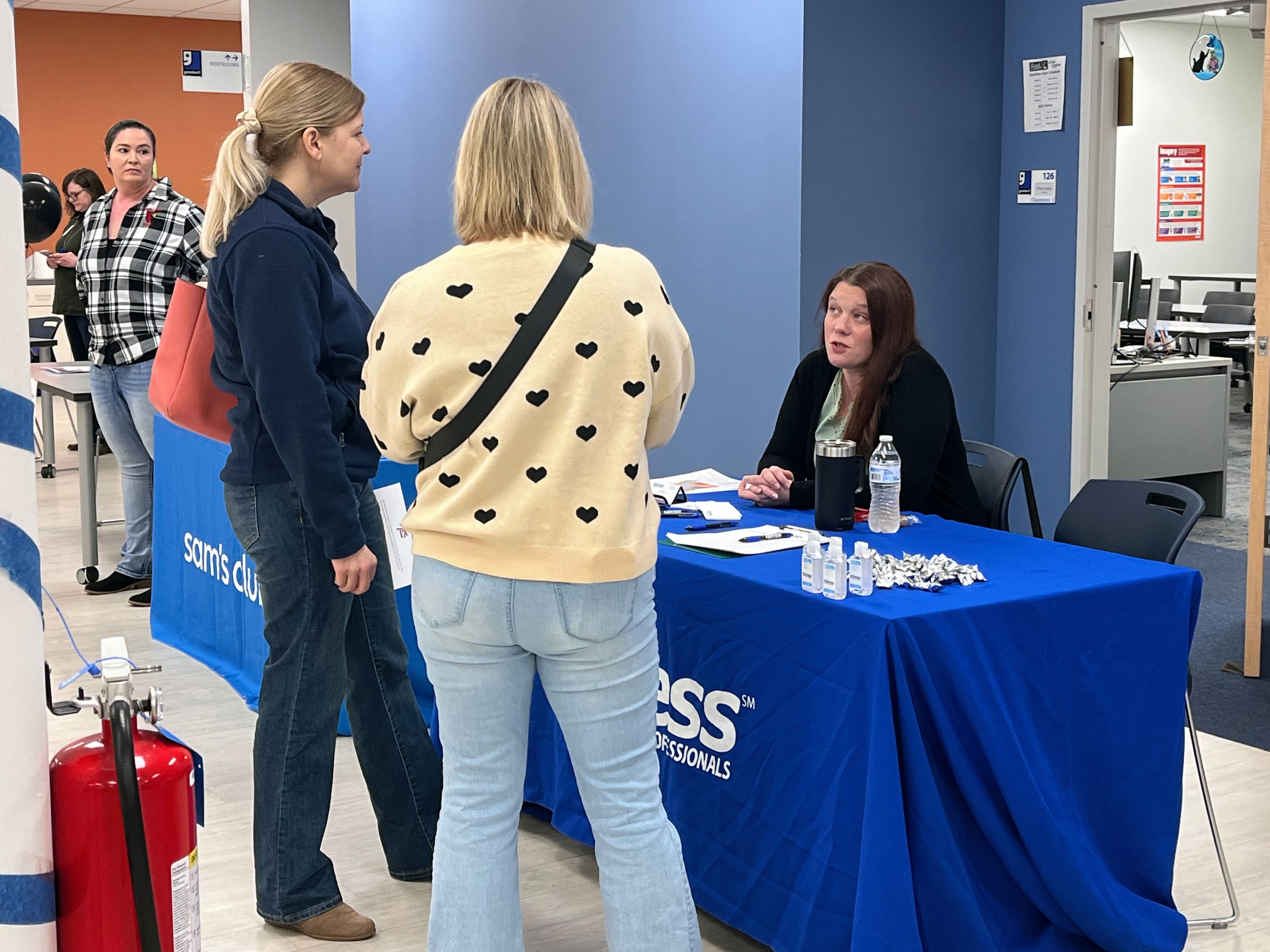First Responders Month: Ryan Davie started as a volunteer before diving into career as paramedic with Jackson FD
Ryan Davie, now a captain at Jackson Fire and Rescue, shares his journey from volunteer to paramedic, highlighting the role of EMTs in emergencies and the importance of mental health in the field.
When you ask Ryan Davie about what he does for a living, he smiles and his eyes light up.
He's been in the field for more than 20 years now, and his body language and facial expressions give away his passion for helping people.
Davie, a captain, is the head EMT and paramedic professional at Jackson Fire and Rescue. He's one of 18 EMTs at the fire department. His paramedic certification gives him the training to handle certain life-saving actions on the job.
Though the fire department is, by name and reputation, known for putting out fires, approximately 75% of calls that come to the stations are for medical emergencies. Fire trucks often beat ambulances to a scene by several minutes, so fire department first responders are critical in life-and-death emergencies where minutes matter.
Davie began his career as a volunteer in 2002 for Gordonville Fire District. He had a friend who was the volunteer fire chief.
"It started out that he just needed some help, and I lived right across the street from the fire station. I grew up around the fire department, so I thought, 'Well, I'll just give him a hand to see if I even like it.' And I did like it. On one of the fire scenes, we actually had a guy who had fallen and hurt himself at that particular time. We didn't really have any kind of medical trained people on the fire scene to wait until the ambulance gets there to help him. So feeling kind of helpless, I pursued going into EMT class."
Davie at first pursued the EMT class through the Career and Technology Center at Cape Girardeau Central High School, thinking he would learn how to help do basic triage in his volunteer role. But he eventually realized, before finishing the course, that the certification could be a building block for a career path. He began using the certification in part-time roles with ambulance districts in the area on nights and weekends. At the same time, he was working in a sales role. He encourages anyone thinking about becoming an EMT to jump in and do it. His only career regret is that he didn't start down the path sooner. But once he did, he knew he was hooked.
"I was just testing the waters to see if I actually liked it. I did like it," Davie said.
He left his sales job and began a full-time role with an ambulance district, while also going through firefighter school. He then landed with Jackson Fire and Rescue. He said typically an EMT certification takes several months and a paramedic certification takes a couple of years of education.
"Our department's very big on guys, allowing them to pursue into paramedic school," he said. "And that's what I did, and I'm enjoying it."
Beyond the training, Davie said good bedside manner — being able to communicate effectively in difficult moments and bring a calming presence — is what makes a good paramedic.
He said establishing trust, and getting information out of a person, is essential to delivering good care.
"Everybody loves the fire department, so they tell us their entire life story," he said. "And we can help them understand everything better in the time frame that we have before the ambulance gets there, and then they're more prepared when they go to the hospital. We front them with some extra questions to ask when they get there, and that will help basically get more reassurance and better treatment from the hospital and doctors."
He said all paramedics and EMTs have to walk an emotional fine line between treating a distressed person needing care like a family member, while also mentally separating themselves from traumas they experience. Davies has been on the scene with people in their final moments.
"It's kind of part of the schooling and the process of getting accustomed to the job and to the career," he said. "You've got to have some emotion with it, but a lot of times it does resort back to -- it's very hard to describe — but you've got to have a disconnect between letting it affect you and actually trying to forget it. On the mental health side of it, that is now very, very big. In the last two to three years, they've pushed for us to have good downtime or hobbies, something that will take your mind off of certain calls or incidents. Making sure you're taking care of yourself."
Speaking of mental health, one of Davies' biggest pieces of advice to the public is that people in mental health crises can contact the fire department.
"We really don't mind coming and helping people on the mental side of it," he said. "The police department or the fire department — we're all trained together, so we can help somebody. So we can come talk to them, kind of get the wheels going, get them transported over to one of the facilities in Cape to talk to somebody. There are options for them, as far as the medical side of it."
Regardless of a person's emergency medical needs, Davis said, "If somebody needs us, we're always ready."
Connect with the Southeast Missourian Newsroom:
For corrections to this story or other insights for the editor, click here. To submit a letter to the editor, click here. To learn about the Southeast Missourian’s AI Policy, click here.


